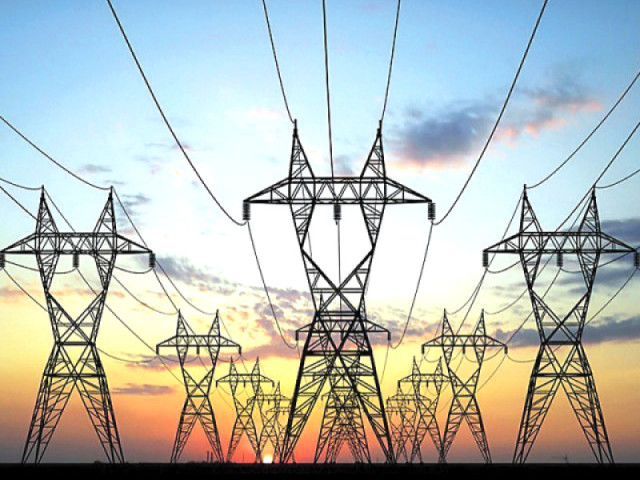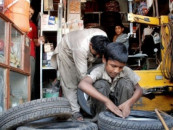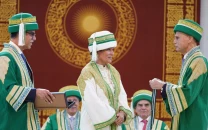Sustainability report: CASA electricity import project flawed, says report
SDPI study investigates viability of project and flaws in KESC.

Pakistan is better off generating its own electricity than importing electricity through CASA-1000MW project, says a research study conducted by Sustainable Development Policy Institute (SDPI).
The research termed the import project flawed and said that it will provide power for only seven months.
The CASA 1000 project aims to transmit energy from Kyrgyz Republic and Republic of Tajikistan to Afghanistan and Pakistan through a 700km electricity transmission line, the longest ever. The transmission line will pass through the politically troubled area of Afghanistan.
The report ‘Pakistan Power Outlook: Appraisal of KESC after Privatisation’ released on Friday termed the project technically and financially flawed.
“The best option for Pakistan is to develop its own projects not only to provide cheap electricity to Karachi and to the rest of the country, but also to provide massive job opportunities to its people,” report adds.
The report also highlights the causes of chaotic energy situation in Pakistan while discussing Karachi Electric Supply Company (KESC) as a case study.
The report illustrates that thermal power plants in Pakistan, particularly KESC, operate at a very low efficiency level and consume high quantity of fuel to generate electricity. KESC takes 11 to 18 cubic feet of gas to generate one unit of electricity whereas plants of other companies such as Uch Power, Saif power and Orient Power take only 7.37, 7.47 and 7.56 cubic feet of gas respectively for generating one unit.
On a regional level, when gas consumption is compared with thermal plants of Bangladesh, the consumption of KESC was found to be almost double.
The report calls on KESC to buy electricity from hydro power plants at minimal cost instead of purchasing it from Independent Power Producers at a hefty cost. At present, KESC is purchasing electricity on average at the rate of Rs8 to Rs16 per unit which is very high as compared with Rs0.37 per unit obtained from hydro power plants with minimal wheeling charges by NTDC.
KESC has been recommended to introduce ‘smart grid’ with advanced metering system as Lahore Electric Supply Company (Lesco) successfully implemented smart meters in the old walled city of Lahore and brought down the line losses from 17.8% to 3.5% within 10 months.
Karachi Electric Supply Company spokesperson said the report by the by the ‘so-called’ think tank SDPI is one-sided, baseless and defamatory.
The spokesperson further said that the negative bias against KESC and the hidden nefarious agenda of SDPI is evident from the fact that SDPI did not even consider it worthwhile to seek information from KESC.
The spokesperson added that KESC was able to add fresh generation capacity of 1,000 megawatts in a short span of time, overhaul old plants and transmission lines, significantly enhance the distribution capacity and considerably improve its technical and service capability. Spokesperson also added that the $450 million flagship combined cycle gas-fired 560MW power plant at Bin Qasim is already functional and is one of the highest efficient plants in the region. SPDI very conveniently ignored all these facts because the objective of their report was to twist facts, spokesperson added.
Amongst its key initiatives, KESC has undertaken a number of steps to reduce dependence on gas and achieve fuel diversification. KESC signed a $200 Million JDA with a Hong Kong-based firm, BEEGL for converting furnace oil based units at Bin Qasim (BQPS-1) to coal starting with Phase I, two units of 210MW. The utility has also signed an MoU with the same firm for setting up coal projects of up to 1,000MW in Karachi. KESC also plans to set up a 300MW coal fired power plant at Thar.
SPDI also cast allegations about KESC receiving subsidy that is a pass through item that KESC passes on to its consumers on behalf of the government and it is in effect the consumers that receive this, and not the utility. The spokesperson said KESC after privatisation has not received a single rupee from the government to subsidise its operations.
Published in The Express Tribune, August 18th, 2012.



















COMMENTS
Comments are moderated and generally will be posted if they are on-topic and not abusive.
For more information, please see our Comments FAQ